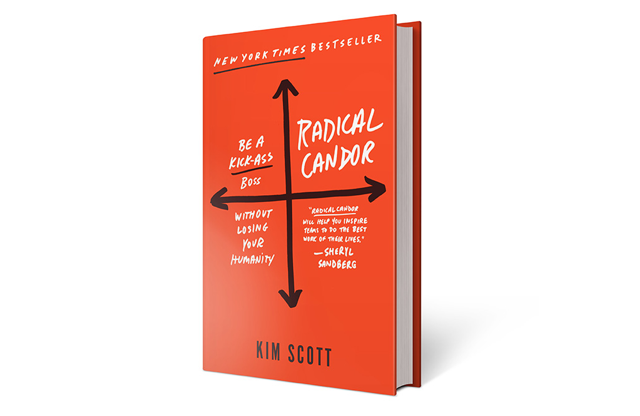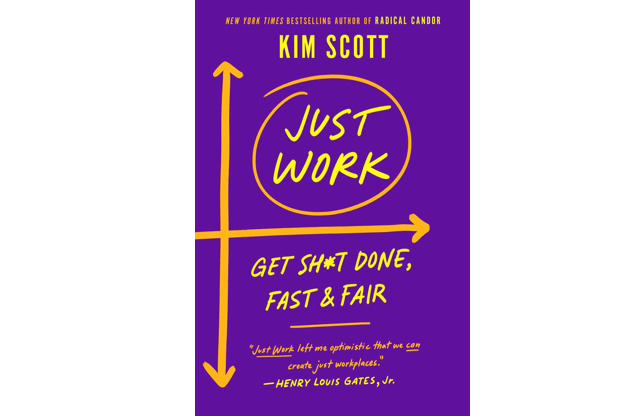Publicis Sapient: Why is “Radical Candor” still so relevant today?
Kim Scott: A lot of people have in their mind this false dichotomy between being either somebody who’s really effective but a total jerk, or somebody who’s really ineffective but really nice. Nobody wants to have that choice. Nobody wants to have to choose between being a jerk and being successful. We don’t have to choose. That’s a false dichotomy. I think that is a big part of what has helped the idea catch on. I also think so many of us were told from the time we learned to speak, "if you don’t have anything nice to say, don’t say anything at all." Now all of a sudden it’s your job to say it. That is really hard. It’s hard to undo training that’s been pounded into your head since you learned to speak. At the same time, we were taught since we got our first job and we were told, “be professional.” I think for an awful lot of us, that gets translated to mean, “leave your emotions, leave your true identity, leave your humanity, leave everything that’s best about you at home. And show up at work like some kind of robot.” That’s not good either. I think realizing that we can care and we can be honest with each other at the same time, is a big relief for a lot of people.
PS: The wildfires are still burning in your area in California. At a time like this, how do you continue working or leading a team?
Scott: I think that the things I have found to be the most important to get through these times, starting with COVID and even more important now, are 1) Compassion for the people around me and also for myself. 2) Candor. Really telling the truth about what’s going on. 3) Action. I think work has been, for me, one of the most important psychological tools to get through this time.
PS: One of the tenets of “Radical Candor” is to care personally and challenge directly. Is that more challenging to do virtually, when many people are working remotely?
Scott: It’s obviously much more difficult when I’m not in person because 85 percent of communication is non-verbal. When you don’t get the texture of talking to people just as easily as walking by them when you’re going to get a cup of coffee or whatnot, it’s much harder. However, I’ve learned a few things during COVID. One of the things I really stress in the book is the importance of in-person communication. But I think actually you can get a lot of the way there by talking over video. You get so much of that non-verbal communication and you get feedback when you talk live. So I think being really conscious of when you’re having a synchronous conversation over video, and when you can email stuff out, is really important to caring personally and challenging directly in this time. The other thing I’ve learned is that even though I’ve taken a productivity hit working at home, I think I have gotten a parenting gain, a personal time gain, and a spousal gain because I have more time with my family. It turns out it’s most important to show up for yourself in your personal life and your personal relationships. That’s something I hope I can take back with me after we can emerge from quarantine.
PS: Do you think after COVID is over, there will be permanent changes in work habits and people will end up working more over video?
Scott: Basically, all of the CEOs I coach right now have said that they have either gotten out of their leases or are working on getting out of their leases. That they are going to make a big shift to virtual work. To not force everyone to show up in the office again. Of course there are times when we really do need to get together in person. But I think a lot of people have been quite surprised at how effective people can be when they are working from home. Also, they themselves are happier. They’re getting more sleep. They’re getting more exercise because they don’t have the commute time. They’re getting more time with their families.
PS: What inspired you to write your next book, “Just Work”?
Scott: I was talking to somebody and I said, ‘Radical Candor’ is a guerrilla feminist text. And then it hit me like a ton of bricks, the irony of having a clandestine message in a book about candor. So here’s some radical candor about “Radical Candor”: Radical candor works. It works really well. But it works best for white men. Anyone who is underrepresented has more struggles with “radical candor.” One of the things I realized is I needed to go much deeper into how we can be radically candid when bias, prejudice or bullying enter the equation. Also, how we can be radically candid when those three root causes of workplace injustice manifest as discrimination, harassment or even physical violations.












